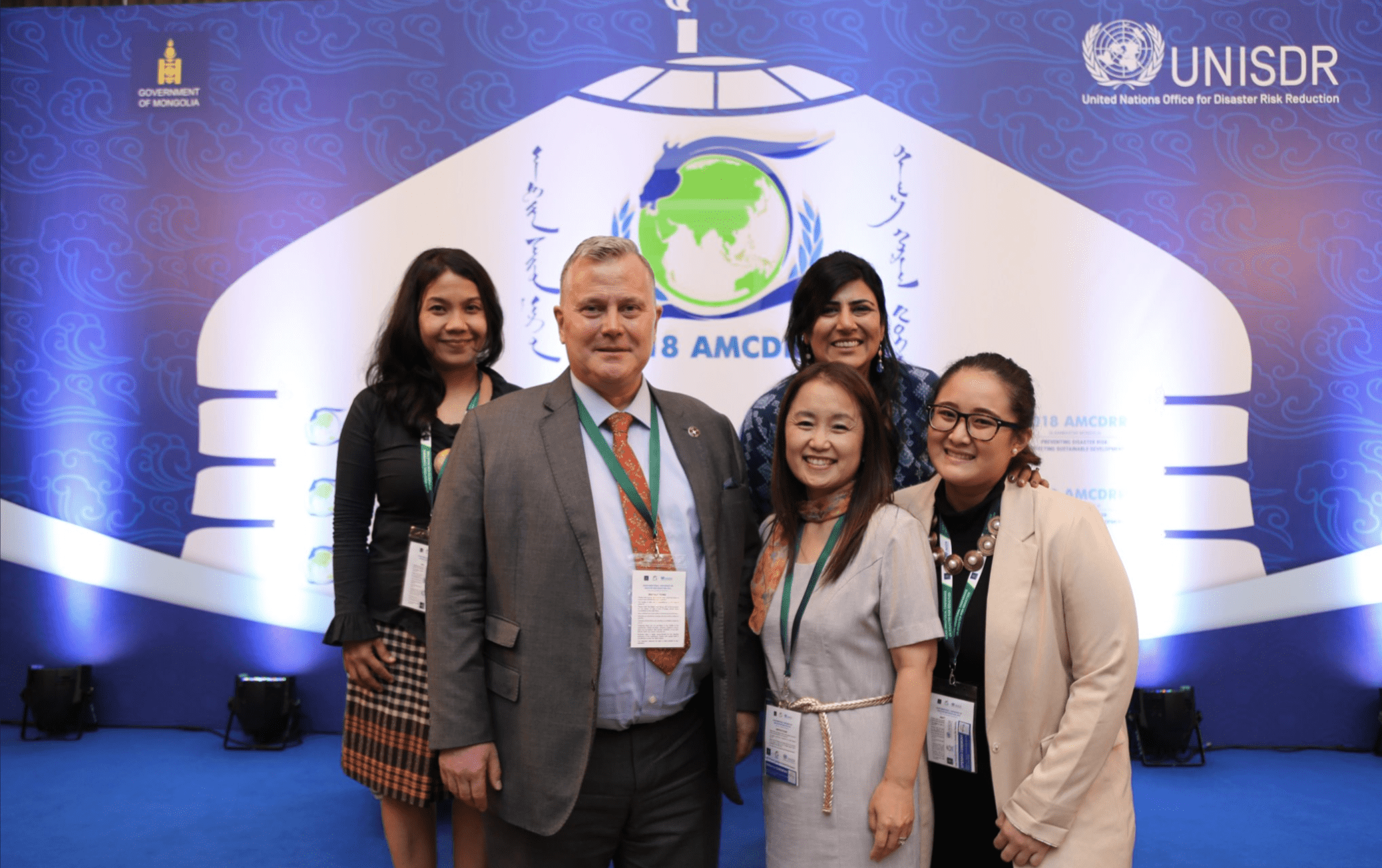A significant breakthrough was achieved at the 2018 Asian Ministerial Conference on Disaster Risk Reduction (AMCDRR) which was held in Ulaanbaatar, Mongolia from 3-6 of July. The AMCDRR is a follow up to the Sendai Framework for Disaster Risk Reduction 2015-2030.
Ministers from over 50 Asia-Pacific countries and close to 1,500 organizations and 3,200 participants attended the conference which was organised by the Government of Mongolia in collaboration with the UN’s Office of Disaster Risk Reduction (UNISDR) with the theme of ‘Preventing Disaster Risk, Protecting Sustainable Development.’
Through extensive advocacy and participation by UNFPA’s Asia-Pacific Regional Director Bjorn Andersson and staff from the UNFPA Asia-Pacific Regional Office and a number of country offices, key areas related to UNFPA’s mandate were included in the conference outcome documents, including the need to prioritize sexual and reproductive health as well as respond to gender-based violence in the context of natural disasters and conflicts. These issues are at the heart of UNFPA's humanitarian response globally, including Asia and the Pacific, the world's most disaster-prone region.
"The Ulaanbaatar Declaration," a political document signed by over 50 nations including from the Asia-Pacific region, spells out their resolve to strengthen resilience of their respective communities to disasters. It commits to a people-centered and whole-of-society approach towards disaster risk reduction. It also emphasizes the need to enhance the capacity of communities and ensure participation of all stakeholder groups towards achieving resilience. Equally important, the Declaration encourages meaningful participation and supports representation of women, children and youth, and persons with disabilities in leadership roles for disaster risk reduction.
Getting key language on UNFPA's humanitarian priorities included in the Declaration strengthens prospects for these issues to be enshrined all the more strongly in subsequent iterations of global disaster risk reduction and humanitarian response protocols. The Declaration builds on a foundation that was laid two years earlier at the 2016 AMCDRR in New Delhi, as well as the Sendai Framework itself which was achieved in 2015.
The “Asia Regional Plan for the Implementation of the Sendai Framework for Disaster Risk Reduction 2018-2020" focuses on actions at regional, national and local levels, to reduce disaster risk.
The action plan inlcudes the promotion and support of gender-sensitive and gender-response disaster risk reduction actions both nationally and locally, including universal access to sexual and reproductive health-care services, prevention of and response to gender-based violence, women’s leadership roles and the meaningful engagement of young people.
UNFPA also participated in the AMCDRR 2018 pre-conference events/consultations of the UNMGCY and Gender stakeholders’ groups. Key issues and recommendations were included in the progress reports that were finalized, and in the statements made by the Children and Youth group and Gender Stakeholders group.


